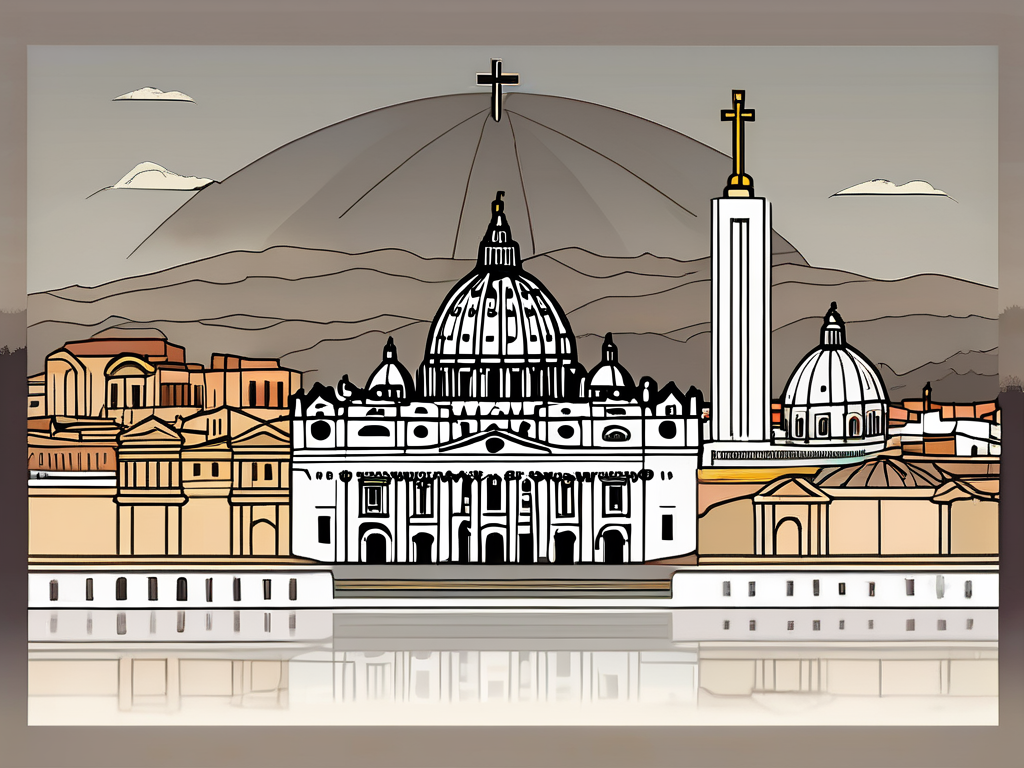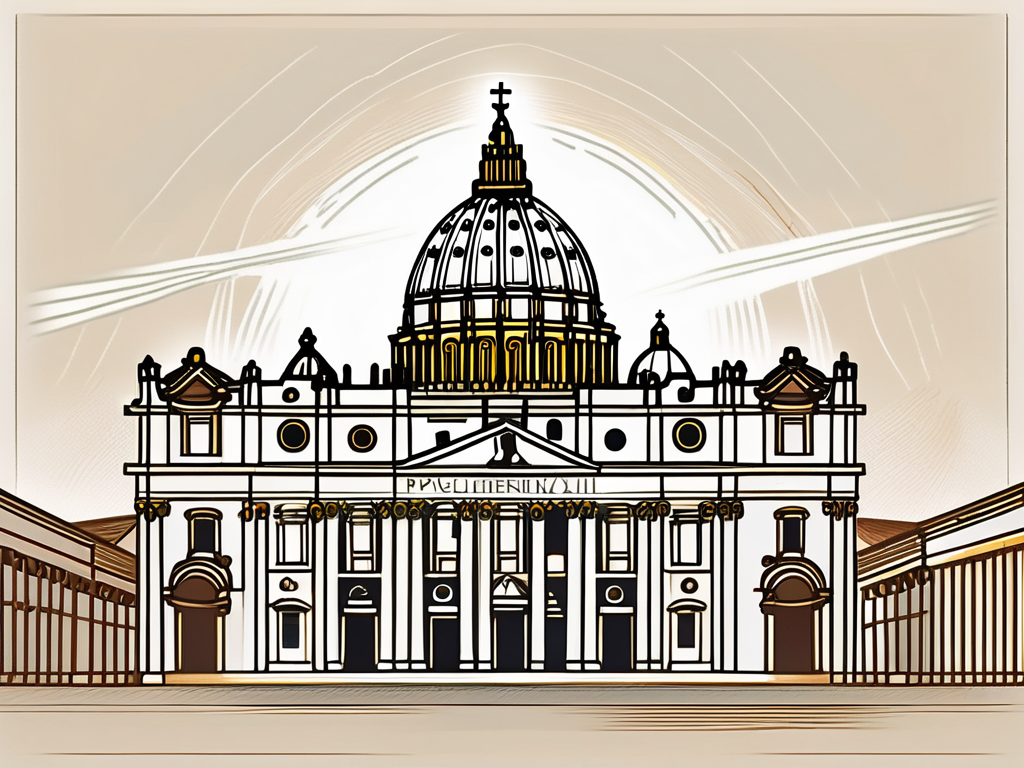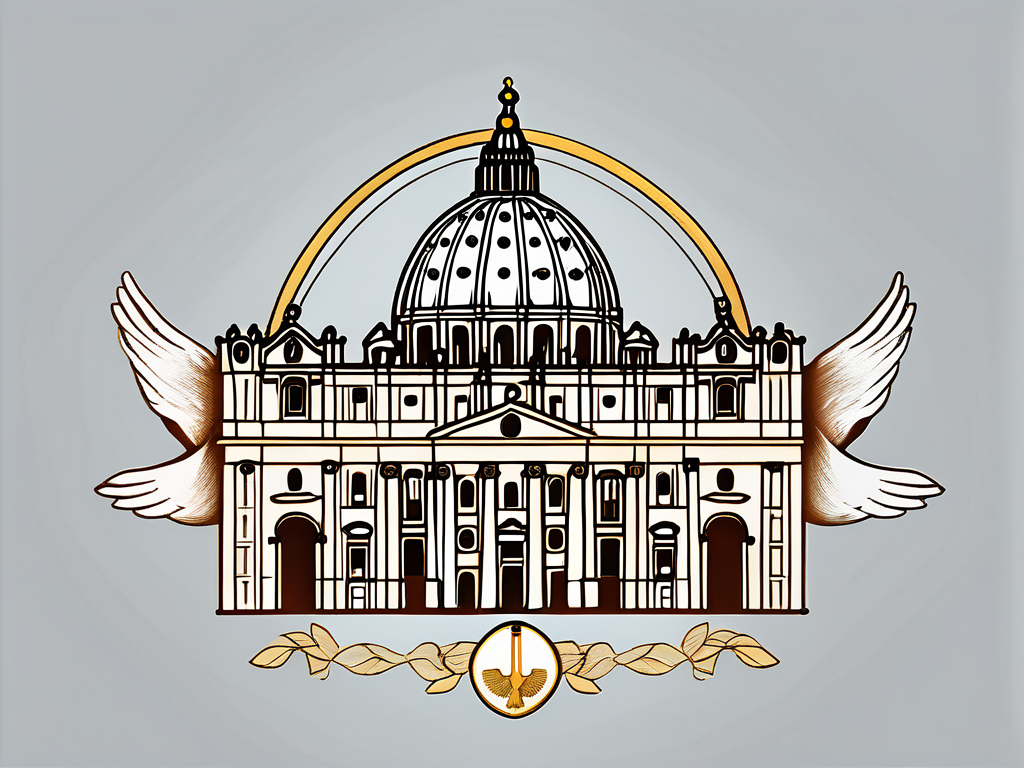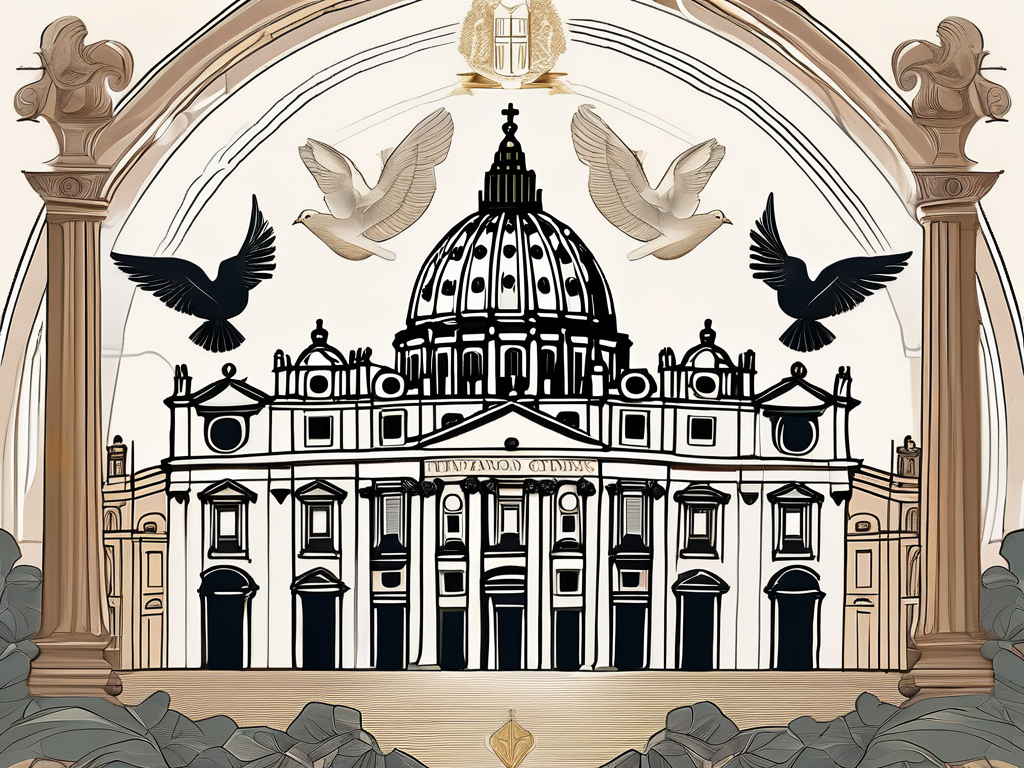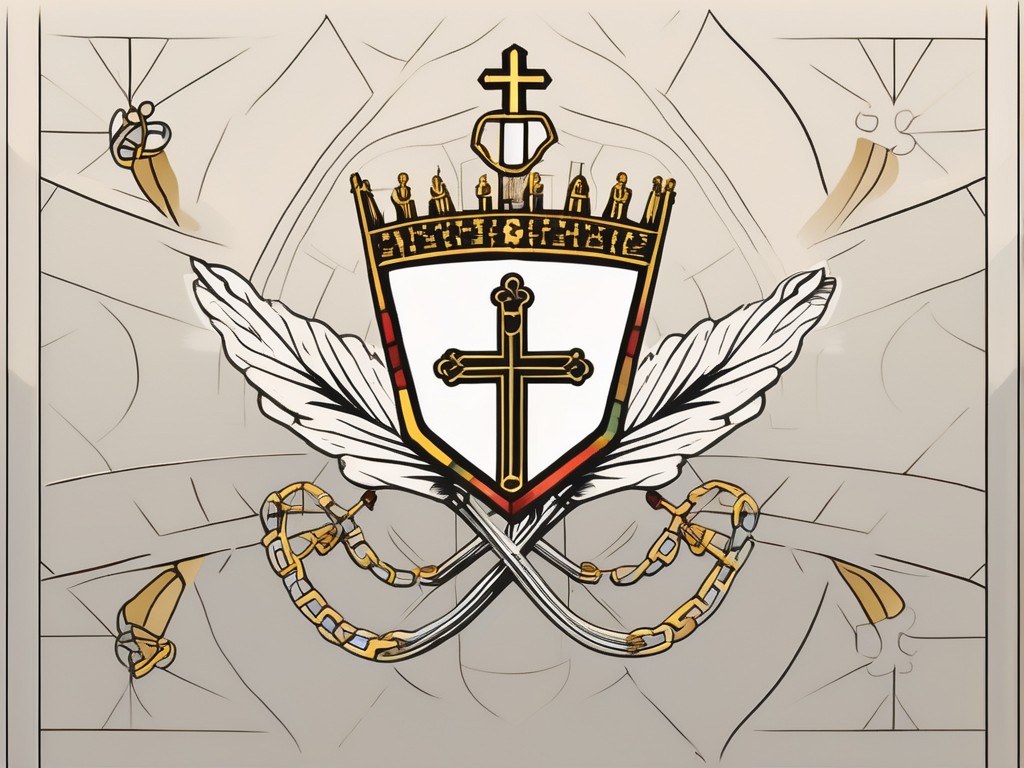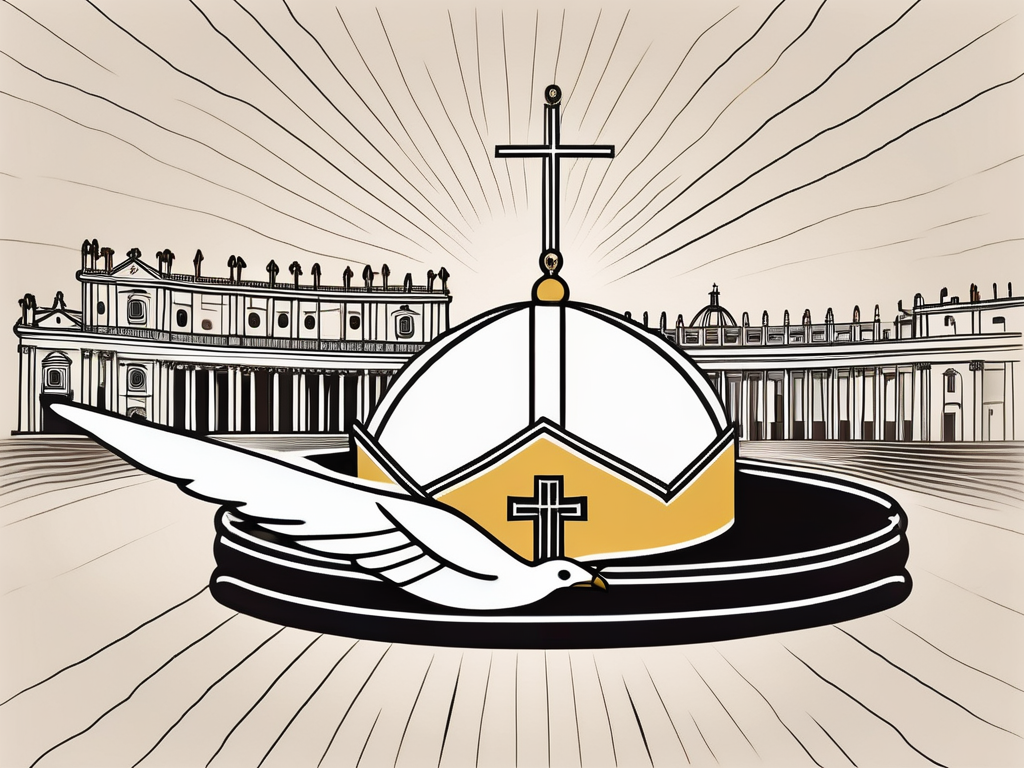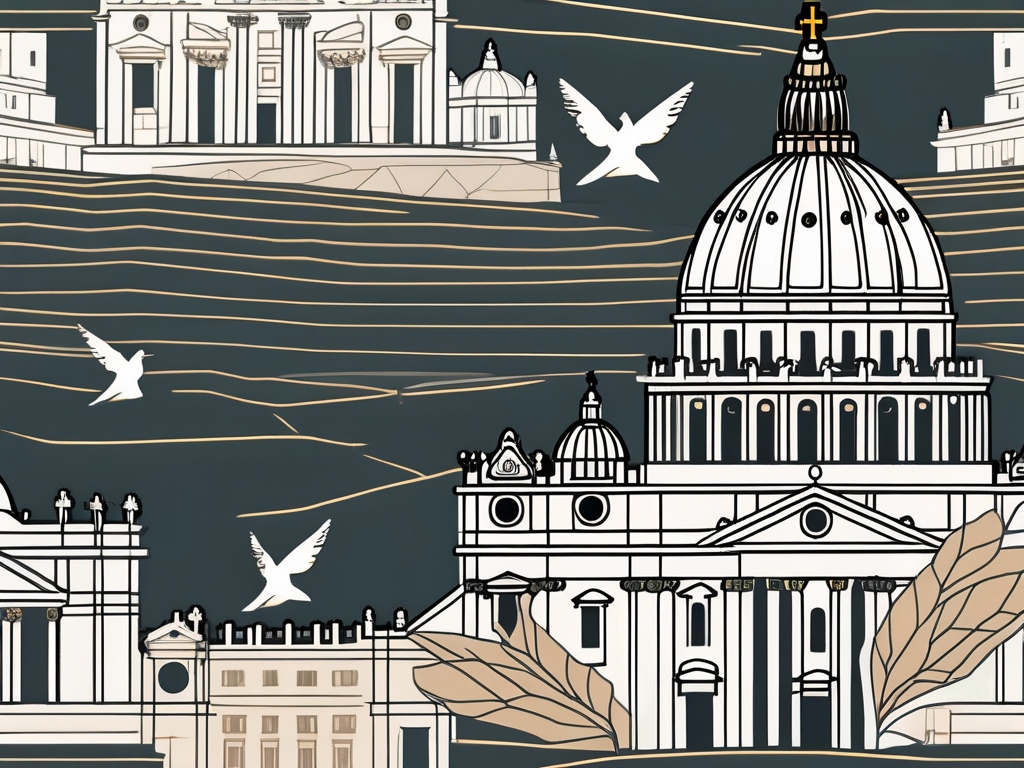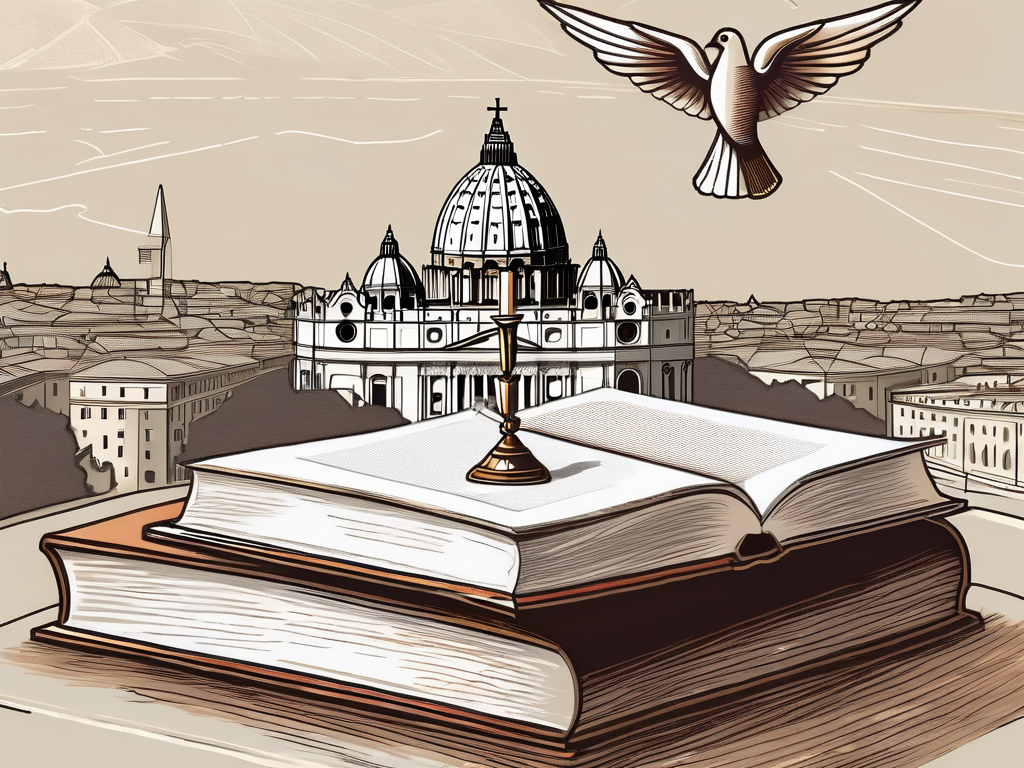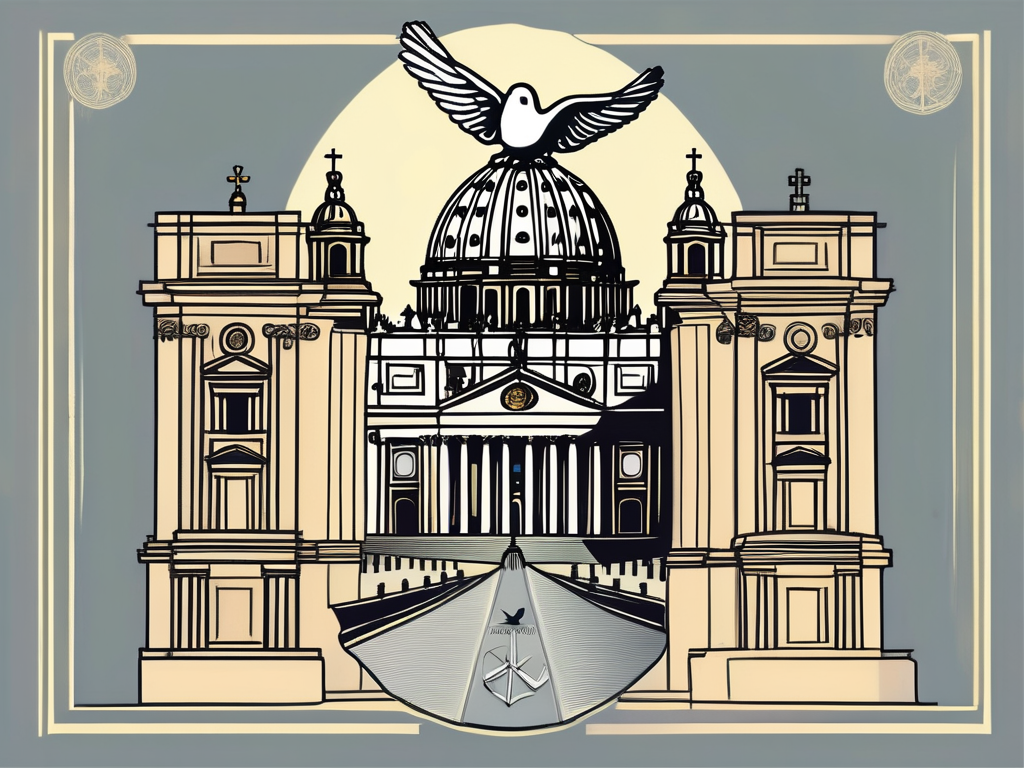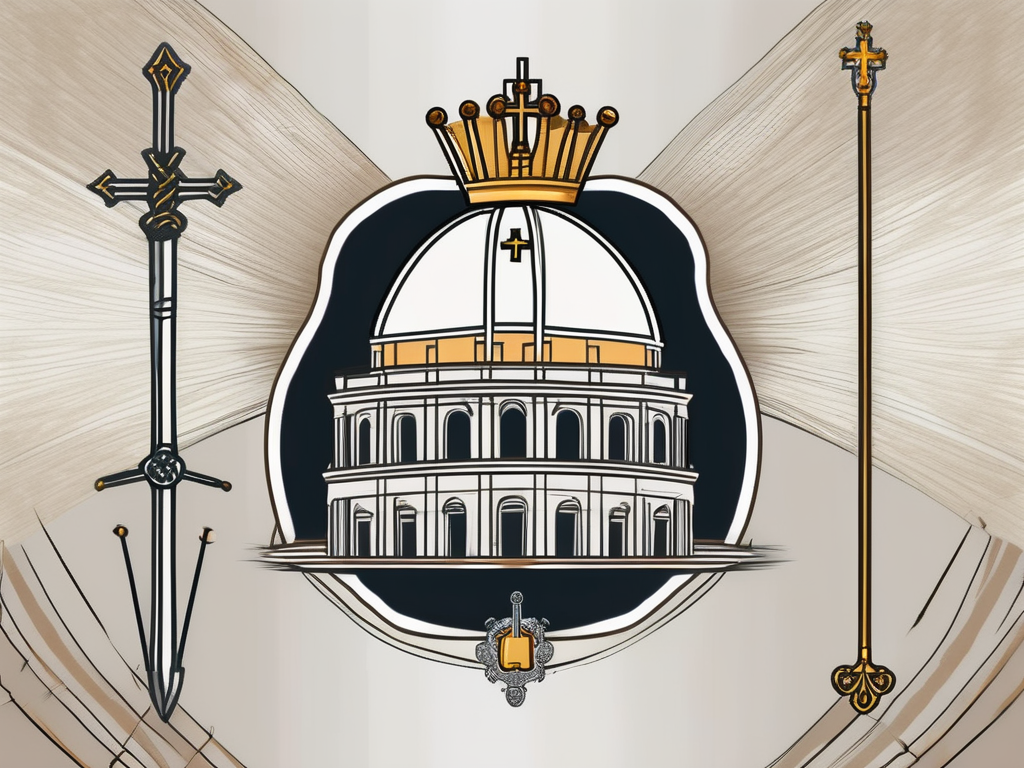Pope Gregory XIII, born Ugo Boncompagni in Bologna, Italy in 1502, left an indelible mark on the Catholic Church and the world as a whole. His life was filled with remarkable achievements, controversies, and contributions that are still remembered centuries later. Let’s delve into the fascinating journey of this influential figure in history who reshaped the Church and left an enduring legacy.
Early Life and Education of Pope Gregory XIII
The beginnings of Gregory XIII’s life were rooted in humble surroundings. He was born into a middle-class family, with his father, Don Cristoforo Boncompagni, working as a doctor. Growing up, Ugo Boncompagni received a solid education, which laid the foundation for his future accomplishments.
Birth and Family Background
Born on January 7, 1502, Ugo Boncompagni enjoyed a close-knit family environment. His upbringing was shaped by the values of integrity, hard work, and deep religious faith. These values would become pillars of his papacy.
Ugo’s father, Don Cristoforo Boncompagni, was not only a doctor but also a devout Catholic. He instilled in his son a strong sense of devotion to God and a deep understanding of the importance of faith in one’s life. The Boncompagni household was filled with love, warmth, and a strong sense of community.
Ugo’s mother, whose name was Caterina, was a kind and nurturing woman. She played a vital role in shaping Ugo’s character, teaching him the values of compassion, empathy, and humility. Caterina’s unwavering support and encouragement would prove to be instrumental in Ugo’s journey towards becoming Pope Gregory XIII.
Education and Early Career
Ugo Boncompagni’s thirst for knowledge led him to pursue a career in law. He studied at the renowned University of Bologna, where he excelled in his studies, developing a deep understanding of civil and canon law.
During his time at the University of Bologna, Ugo Boncompagni immersed himself in the rich intellectual and cultural environment. He engaged in lively debates, attended lectures by esteemed scholars, and delved into the works of influential thinkers of the time. This exposure broadened his horizons and sharpened his critical thinking skills.
After completing his education, Ugo embarked on a successful legal career, making significant contributions to the field. His dedication to justice and fairness set him apart, earning him respect and admiration from his peers.
Ugo’s legal expertise and unwavering commitment to upholding the law led to numerous opportunities for him to serve in various influential positions. His reputation for integrity and fairness made him a trusted advisor and advocate for justice.
Throughout his early career, Ugo Boncompagni demonstrated a remarkable ability to navigate complex legal issues and find equitable solutions. His keen intellect, combined with his deep understanding of the law, allowed him to make significant contributions to the legal landscape of his time.
Ugo’s dedication to his work and his unwavering commitment to justice earned him recognition and respect from his colleagues and superiors. His reputation as a fair and principled lawyer continued to grow, setting the stage for his future endeavors.
Ascension to Papacy
The 52-year-old Ugo Boncompagni faced a pivotal moment in his life when he was elected as Pope on May 13, 1572. His papal name, Gregory XIII, was chosen as a symbol of continuity with the previous pontiffs who bore the same name.
Election and Papal Investiture
The election of Gregory XIII was met with great enthusiasm by the cardinals, who recognized his intellect, leadership qualities, and unwavering commitment to the Church’s core principles. His inauguration as Pope at the Vatican marked the beginning of a transformative era.
As the newly elected Pope, Gregory XIII embarked on a journey that would shape the course of history. The investiture ceremony, held in the grandeur of St. Peter’s Basilica, was a spectacle of faith and tradition. Cardinals, bishops, and dignitaries from around the world gathered to witness this momentous occasion.
The Pope, adorned in his resplendent papal vestments, ascended the throne of St. Peter, a symbol of his authority and spiritual leadership. The air was filled with anticipation as he received the symbols of his office – the papal tiara, the ring of the fisherman, and the pallium. With each gesture, the weight of responsibility and the magnitude of his role as the Vicar of Christ became more apparent.
Challenges and Triumphs in the Early Years
As Pope, Gregory XIII faced numerous challenges, both within the Church and in the broader political landscape. He navigated these obstacles with skill and determination, leaving an indelible mark on history.
The early years of his papacy were marked by his visionary approach to reform. Gregory XIII sought to revitalize the Catholic Church and address pressing issues affecting society. He recognized the need for unity and reconciliation, both within the Church and among nations.
One of the most significant challenges Gregory XIII faced was the religious division that plagued Europe during the sixteenth century. The Protestant Reformation had shaken the foundations of Catholicism, leading to widespread dissent and fragmentation. The Pope, with unwavering conviction, embarked on a mission to restore the unity of the Church and bring an end to the religious strife that tore at the fabric of society.
Gregory XIII’s efforts were not limited to the internal affairs of the Church. He recognized the importance of diplomacy and sought to establish fruitful relationships with rulers and statesmen across the globe. Through his diplomatic endeavors, he aimed to promote peace and foster cooperation among nations, transcending religious differences.
Furthermore, Gregory XIII was a patron of the arts and sciences. He believed that the pursuit of knowledge and the celebration of beauty were integral to the human experience. Under his patronage, artists, scholars, and scientists flourished, contributing to the cultural and intellectual renaissance of the time.
The early years of Gregory XIII’s papacy were a testament to his unwavering commitment to the Church and his visionary leadership. His reforms and diplomatic initiatives laid the foundation for a new era of unity, peace, and intellectual enlightenment.
Major Contributions and Reforms
During his papacy, Gregory XIII left an impressive legacy through various influential contributions and reforms that continue to shape our world today.
The Gregorian Calendar
One of his most profound achievements was the introduction of the Gregorian Calendar in 1582. This reform corrected the inaccuracies in the Julian Calendar, which had been in use for centuries. The Gregorian Calendar, still widely used, was a remarkable feat that showcased Gregory XIII’s commitment to precision and scientific progress.
With the introduction of the Gregorian Calendar, Gregory XIII revolutionized the way we measure time. The new calendar, based on the Earth’s orbit around the sun, provided a more accurate system for calculating leap years and determining the date of Easter. This reform had significant implications for various aspects of society, including agriculture, trade, and religious observances.
By implementing the Gregorian Calendar, Gregory XIII brought about a harmonization of timekeeping across different nations and cultures. This standardization facilitated international communication, coordination, and collaboration, fostering a sense of global unity.
Church Reforms and Diplomacy
Gregory XIII spearheaded crucial reforms within the Church, addressing corruption and promoting moral integrity. He championed the importance of education, creating seminaries to train priests and establishing the Roman College, which later became the prestigious Pontifical Gregorian University.
Under Gregory XIII’s leadership, the Church underwent a period of renewal and revitalization. His reforms aimed to strengthen the institution’s moral authority and restore faith in its teachings. By emphasizing the importance of education, Gregory XIII sought to ensure that future generations of clergy were well-equipped to serve their communities and uphold the values of the Church.
Furthermore, Gregory XIII displayed exceptional diplomatic skills, seeking to resolve conflicts and establish peaceful relations between warring factions. His efforts were instrumental in fostering harmony during a tumultuous period in European history.
Through his diplomatic endeavors, Gregory XIII played a pivotal role in mediating disputes and promoting dialogue among nations. His commitment to diplomacy helped prevent further bloodshed and contributed to the preservation of peace in Europe.
Gregory XIII’s diplomatic achievements extended beyond the borders of Europe. He actively engaged with leaders from other continents, forging alliances and promoting understanding between different cultures. His efforts to bridge divides and promote tolerance laid the foundation for future intercultural dialogue and cooperation.
Controversies and Criticisms
Though Gregory XIII’s papacy was marked by commendable achievements, it was not without its controversies and criticisms.
Involvement in the St. Bartholomew’s Day Massacre
One of the most controversial aspects of his papacy was his alleged involvement in the St. Bartholomew’s Day Massacre in 1572. While some historians attribute responsibility to him, others argue that Gregory XIII’s influence over the events has been exaggerated or misunderstood.
Other Notable Controversies
In addition to the St. Bartholomew’s Day Massacre, Gregory XIII faced criticism for his approach to the Inquisition and his handling of certain political matters. These controversies underscore the complexities of his papacy and the challenges he faced in navigating the turbulent currents of his time.
Pope Gregory XIII’s Influence on Art and Culture
Aside from his reform-oriented agenda and political involvement, Gregory XIII made lasting contributions to art and culture.
Patronage of the Arts
Under his patronage, the Vatican’s artistic treasures flourished. Gregory XIII commissioned renowned artists such as Taddeo and Federico Zuccari to create breathtaking frescoes and decorative artworks, adorning the Vatican’s halls with splendor and beauty. His support for the arts reflected his belief in their ability to inspire and uplift the spirit.
Architectural Contributions
Gregory XIII also contributed to the architectural splendor of Rome, initiating construction projects that transformed the city’s skyline. The Gregorian Tower, situated within the Vatican, stands as a testament to his architectural vision and love for artistic grandeur.
In conclusion, Pope Gregory XIII’s life was a tapestry woven with extraordinary achievements, controversies, and significant contributions. His establishment of the Gregorian Calendar, reform initiatives, and support for the arts all exemplify his enduring influence on society. While his papacy was not without blemishes, Gregory XIII’s legacy lives on, etched in the annals of history as a period of transformation and progress for the Catholic Church.
